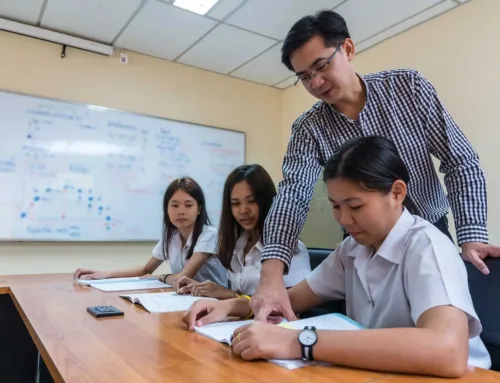Interoception is often called the “hidden sense.” It’s the ability to notice and understand internal body signals—like hunger, thirst, temperature, or the need to use the bathroom. For children in Phnom Penh, especially those with autism, ADHD, or sensory processing challenges, interoception plays a key role in self-regulation, emotional awareness, and independence. At OrbRom Center, we teach kids how to tune in to these signals so they can respond in healthier, more confident ways.
Why interoception matters
Children who struggle with interoception may:
-
Miss cues like feeling hungry, tired, or needing the toilet.
-
Find it hard to connect body signals with emotions (e.g., recognizing that a racing heart = anxiety).
-
React with “big behaviors” because they don’t recognize early warning signs.
-
Struggle with self-regulation in school or social situations.
For a related look at regulation, see: Sensory Processing Sensitivity and Benefits of a Sensory Room.
Teaching kids to notice body signals
Therapy and classroom strategies can make interoception concrete and engaging:
-
Body check-ins: Have children pause and scan how different parts of their body feel (warm, tight, empty, full).
-
Emotion-body mapping: Use visuals to show where feelings “live” (e.g., butterflies in the stomach for nervousness).
-
Mindful movement: Yoga, breathing, and stretching help children notice changes in heartbeat and breathing.
-
Practical routines: Pair signals with action—“My tummy feels empty, so it’s time to eat.”
These approaches complement sensory-based supports: Proprioceptive Activities and Gross Motor Skills in Child Development.
How OrbRom Center supports interoception in Phnom Penh
Our Occupational Therapy programs integrate interoception skill-building into play, school readiness, and daily routines. Therapists guide children to:
-
Connect body sensations to emotions.
-
Build self-awareness to prevent meltdowns.
-
Practice self-regulation strategies (deep breathing, movement breaks, sensory tools).
-
Transfer skills into the classroom and home for consistency.
See how our environment helps: Stepping into the Sensory Zone.
Teaching interoception is more than just body awareness—it’s about giving kids the tools to understand themselves and manage daily challenges. With structured therapy, visuals, and consistent support at home and school, children in Phnom Penh can build the self-regulation skills they need to thrive.
We are the only Preschool specialized on children with special needs in PhnomPenh.
- Internationally qualified teachers
- Cambodia’s largest sensory room
- Outdoor swimming pool
- Covered outdoor playground
📞 Phone: 077.455.993
Telegram Link: https://t.me/OrbRom





